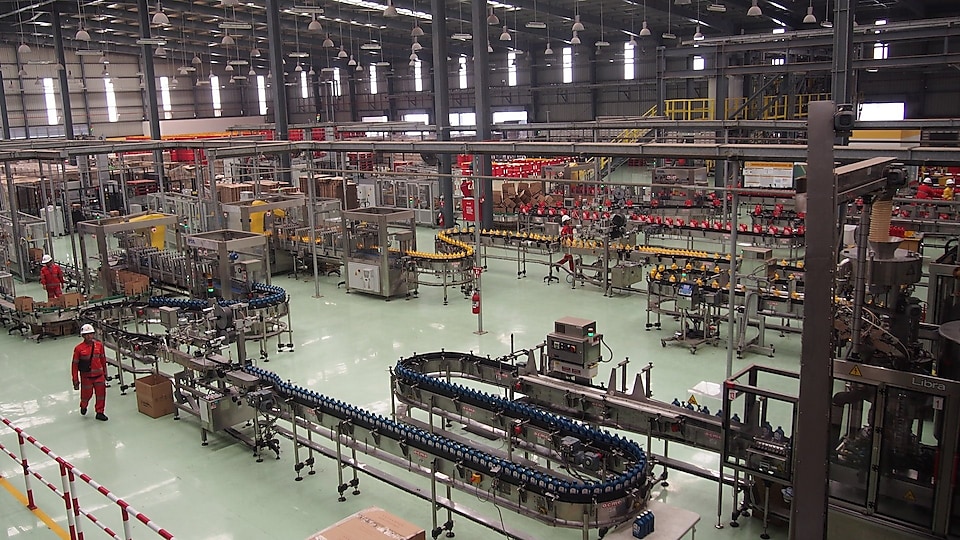
Shell Indonesia will double production capacity at its lubricant blending plant in Marunda Centre, north of Jakarta, to 300 million liters per year, the company announced yesterday.
“This expansion will enable Shell to meet the growing demand of the domestic lubricants market and contribute to the advancement of Indonesia’s downstream industry,” the company stated in a news release about a groundbreaking ceremony at the site. “The expansion is expected to be completed in a few years,” a Shell spokesperson told Lube Report. The plant is on a 7.5 hectare site – neighboring the country’s busiest seaport, the Port of Tanjung Priok – and will be expanded to 9 hectares, the spokesperson said.
“Shell’s Marunda lubricants oil blending plant is already the largest internationally operated lubricants plant in Indonesia. Doubling its capacity helps Shell expand our business and customer base in Indonesia, one of Southeast Asia’s largest lubricants markets,” said Carlos Maurer, executive vice president of Shell Global Commercial. The spokesperson said the existing plant already produces Shell brands such as Helix passenger car motor oil, Advance motorcycle oil, Rimula heavy duty engine oil, Spirax transmission oil, Tellus hydraulic oi and marine engine oils.
“Indonesia’s attractiveness as an industrial investment hub is reflected from the increase of the Ease of Doing Business Index compared to the previous year,” Muhammad Khayam, the Indonesian government’s director general of chemical, pharmaceutical and textile industries, said in the announcement. “Combining this improvement with other stimulus from the government and the transformation towards industry 4.0 is expected to increase the capacity and industrial utilities of the lubricants industry in Indonesia, aligned with the growth of the entire industry.”
The minister added that based on the 2019 data, domestic lubricant production was 908.35 million liters last year, or about 817,000 metric tons.
Shell claims to be the first international brand approved as meeting the Indonesian National Standard– known as SNI – for automotive lubricants. The new standard, which took effect in September 2019, has requirements that apply to lubricants for 2- and 4-stroke gasoline engines, high-speed diesel engines, wheels, axles and manual gearboxes, as well as automatic transmissions. The company’s Argina diesel engine oil, Rimula heavy-duty diesel engine oil and Tellus hydraulic fluids are SNI-certified.
According to Ipsos business consulting, Indonesia is one of the top 10 lubricant markets and is expected to be the largest in Southeast Asia by 2020.
Indonesia’s annual automotive lubricant demand reached about 360,000 metric tons in 2018, with the nation’s four-wheeler lubricant demand outpacing growth in the two-wheeler segment, a senior official of Federal Karyatama said at an ICIS Conference in Singapore in June 2019. Lubricant demand for two-wheelers in Indonesia increased to 248,000 tons as the number of motorcycles increased to 96.3 million units last year, the official said.
Demand from various key industries like automotive and transportation, manufacturing, mining, construction, agriculture, and power generation are growing and, “in addition, the government of Indonesia’s plan to advance toward Industry 4.0 unlocks more opportunities for advanced machineries that require high-quality lubricants,” Shell said in its announcement. Shell has blending plants in China, Singapore, Thailand, Malaysia, Vietnam, South Korea, Pakistan and India.
Frost & Sullivan last year that Indonesia would have sales of about 1.65 million units in 2025 and would maintain its position as the largest automotive market in the ASEAN region.